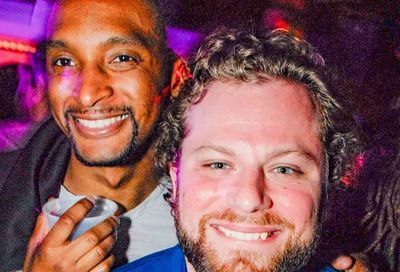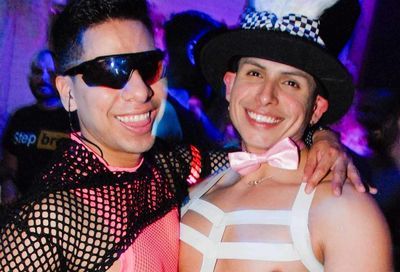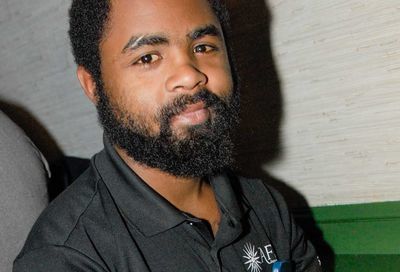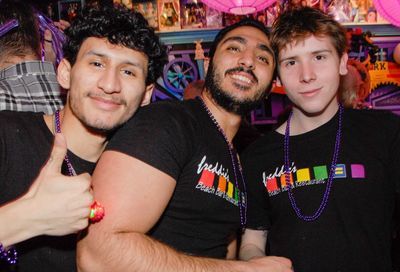Forum: Hoax, Architect or Hate Crime Victim — the Societal Implications of the Jussie Smollett Case
As the facts of the Smollett case continue to unfold, only two things are certain

On January 29, 2019, the world was rocked by reports that Empire star Jussie Smollett had been the victim of a hate-crime involving racial and homophobic slurs, a noose placed around his neck, and evocations of President Trump via a “this is MAGA country” exclamation from his attackers. Immediately following, the Chicago Police Department stated they were investigating the attack as a “possible hate crime.”
In the ensuing days, cable news and media publications featured end-to-end coverage of the case. Smollett was met with a nationwide outpouring of support and strong condemnations of his assault. As corroborating evidence became harder to uncover, speculation regarding Smollett’s account gained traction. In response, Smollett decried skeptics and reaffirmed his account of events, an account he maintains to this day.
Shortly thereafter, Chicago Police announced that they had arrested and released two suspects (without charges) identified as Nigerian brothers Abel and Ola Osundairo. They allegedly informed police investigators Smollett paid them to stage the assault, though they deny this allegation. Last Wednesday, the Chicago PD announced they had arrested Smollett on one count of felony Disorderly Conduct, for filing a false police report. Chicago Police Superintendent Eddie Johnson said Smollett had staged the attack and “took advantage of the pain and anger of racism to promote his career.”
Supporters of Smollett have been quick to highlight the Chicago Police Department’s long history of impropriety relating to African American victims of crime, as justification for Smollett’s legal team’s statement that he’s been betrayed by the law. The city of Chicago has long been a hotbed for crime. With an estimated 241 shootings in 2019 (46 of which were fatal), many of which remain unsolved, Chicago PD has drawn intensive scrutiny for their inability to prevent and adequately investigate such crime when it occurs.
One undeniable byproduct of Smollett’s story is the attention it has brought to pervasive societal issues that are otherwise rarely addressed. Of primary concern is that expressed by LGBTQ activists who hope this “alleged hoax does not have a negative impact on real survivors of hate crimes.” In comments to the Daily News, Center for Black Equity CEO Earl Fowlkes said, “I don’t see this as being indicative of other hate crimes that take place around the country. Each one has to be judged upon its own merit and no two are exactly alike.”
According to the FBI, hate crimes increased 17% last year within the United States, with nearly 60% related to race or sexual orientation. Moreover, an estimated 42 transgender individuals were murdered in the U.S. last year. As such, the prospect of a nationally televised hoax is understandably troubling for the symbolic justification it provides skeptics and those who would seek to undermine the legitimacy and investigative efforts afforded to actual hate crime victims. Activists are concerned this skepticism will disincentivize victims from reporting their attacks, exacerbating the estimated 54% of hate crimes that already go unreported.
In the wake of such uncertainty and division, many, such as Dana Vivian White, speaker and contributor for Out Magazine, have sought to reinforce the lengths society still has to go when addressing issues of violence against LGBTQ members. “[Smollett] didn’t ruin Black History Month, set ‘us’ back, or make abuse cases unbelievable,” they wrote. “He showed me who our allies are, who will publicly doubt and disparage survivors before having all the facts, who wants to prove a point more than care for others, [and] who trusts police.”
As the facts of the Smollett case continue to unfold, two things are certain. In the United States, Jussie Smollett is entitled to a presumption of innocence, and all victims of hate crimes deserve to be believed (and have their stories investigated). To allow our culture or media to try and convince us otherwise is simply un-American.
Kenya Hutton is the program director at the Center for Black Equity, and is one of the directors of CDG Community, a think tank that provides services for the House/Ballroom and LGBTQ Communities nationwide.
The opinions expressed in Forum do not necessarily reflect those of Metro Weekly or its employees. Add your voice. Learn how at www.metroweekly.com/forum.
Support Metro Weekly’s Journalism
These are challenging times for news organizations. And yet it’s crucial we stay active and provide vital resources and information to both our local readers and the world. So won’t you please take a moment and consider supporting Metro Weekly with a membership? For as little as $5 a month, you can help ensure Metro Weekly magazine and MetroWeekly.com remain free, viable resources as we provide the best, most diverse, culturally-resonant LGBTQ coverage in both the D.C. region and around the world. Memberships come with exclusive perks and discounts, your own personal digital delivery of each week’s magazine (and an archive), access to our Member's Lounge when it launches this fall, and exclusive members-only items like Metro Weekly Membership Mugs and Tote Bags! Check out all our membership levels here and please join us today!






















